#1860 Election
Text
God damn your god damned old hellfired god damned soul to hell god damn you and goddam your god damned family's god damned hellfired god damned soul to hell and god damnation god damn them and god damn your god damn friends to hell.
Letter from a citizen to President-elect Abraham Lincoln, November 25, 1860.
I can't prove it, but I'm going to go out on a limb and guess that this citizen didn't vote for Lincoln.
#History#Presidents#Abraham Lincoln#President Lincoln#1860 Election#Politics#Presidential History#Quotes About Presidents#Political History#Elections#Maybe the citizen just REALLY liked Stephen A. Douglas#Presidential Correspondence#POTUS#POTUS History#I can neither confirm or deny that this citizen plagiarized letters that I wrote to Donald Trump
612 notes
·
View notes
Text
20 notes
·
View notes
Photo
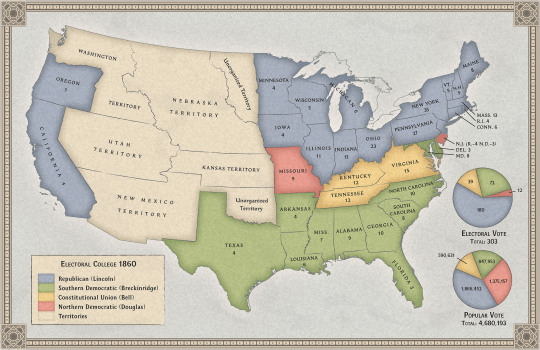
The US presidential election of 1860 set the stage for the American Civil War. The nation had been divided throughout most of the 1850s on questions of states' rights and slavery in the territories.
From the NatGeoBooks Atlas of the Civil War.
by @NatGeoMaps
140 notes
·
View notes
Text
All the tour groups in Springfield should be very proud of me for how well I refrained from sharing all my fascinating Lincoln facts.
#there were so many school groups!#a giant one came in RIGHT AFTER i entered lincoln's cabinet room#part of me was screaming 'children i NEED to tell you about all these idiots and their insane drama!'#a smarter part of me understood that would be super weird#so instead i regaled different individuals of my own traveling party after we had the room to ourselves#then at lincoln's tomb we lucked out in getting there during the ten minutes of the day when school groups weren't there#which meant we got a personal tour from a guide who seemed thrilled to have grown-ups to talk to#he and my dad chatted about fishing for a long while in the entry#it didn't feel disrespectful because it totally felt like the kind of conversation lincoln would have understood and joined in on#and then we went on our way but the guide then chased us down to share all the fascinating lincoln stories as we went along#(shout-out to lefty you were great)#and then a school group found us so we made a graceful exit#but outside a teacher was explaining to a different group about how robert was significant in his own right so he's buried at arlington#and the RESTRAINT i showed in not immediately informing them that he was present at three presidential assassinations! it was rather heroic#and then when we toured lincoln's house the guide (who accidentally made it clear he was a revolutionary war buff)#(which made it a bit hilarious he was stuck with lincoln)#asked for questions before we started and someone asked about lincoln's 1860 election campaign!#aka one of my SPECIAL NICHE AREAS OF OBSESSION!#you cannot imagine how desperately i wanted to tell him ALL ABOUT seward and thurlow weed#anyway it was fun to go back now that i actually know stuff about lincoln#but it was also a bit frustrating because now i know how much they leave out#(though there was cool new info and artifacts)#(the blood-stained piece of laura keene's dress was very morbid and very cool)#also it reminded me that i still have that book on the 1860 election i've yet to read and the hype is so real#presidential talk
16 notes
·
View notes
Text
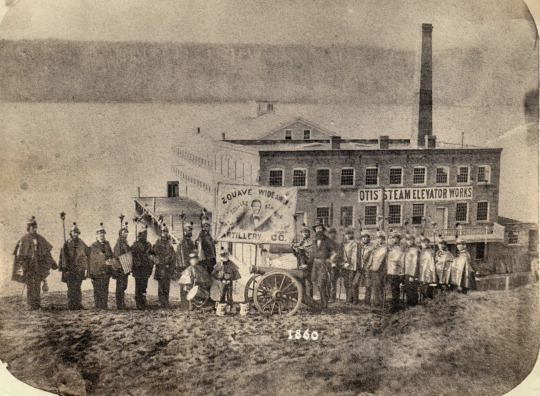
"Zouave Wide Awake Artillery Co." Yonkers, NY, 1860. Via Yonkers Historical Society.
#yonkers#new york#zouaves#artillery#1860#election#lincoln#american civil war#civil war#hudson river#1860s#wide awakes#cannon
6 notes
·
View notes
Text
If we’re being realistic here like historically speaking coconut2020 would have won the election and the voter fraud would have been accepted as like. Well! That’s how the voters voted!
#voter fraud in the us up through the progressive era was widely accepted and actually encouraged by the two major political parties#if the election took place post revolutionary war (hamilton fanfic)#and if Manberg can be seen as a nation with an economic depression#the first U.S. depression was in the 1870s#making the election in the 1860s-1870s#voter fraud would have been encouraged by all parties
28 notes
·
View notes
Photo
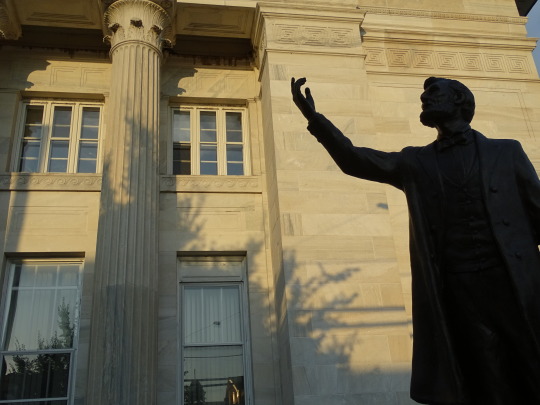

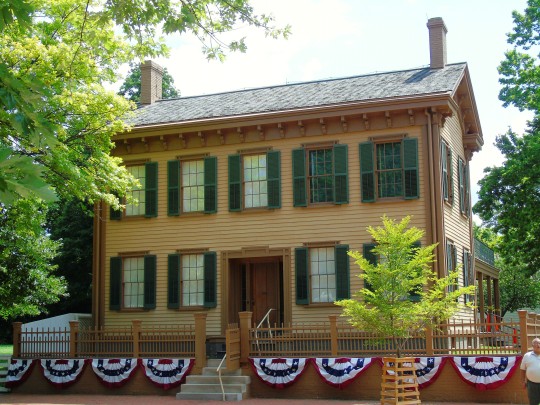


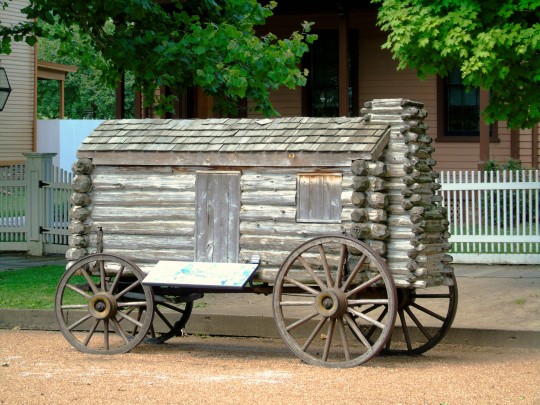
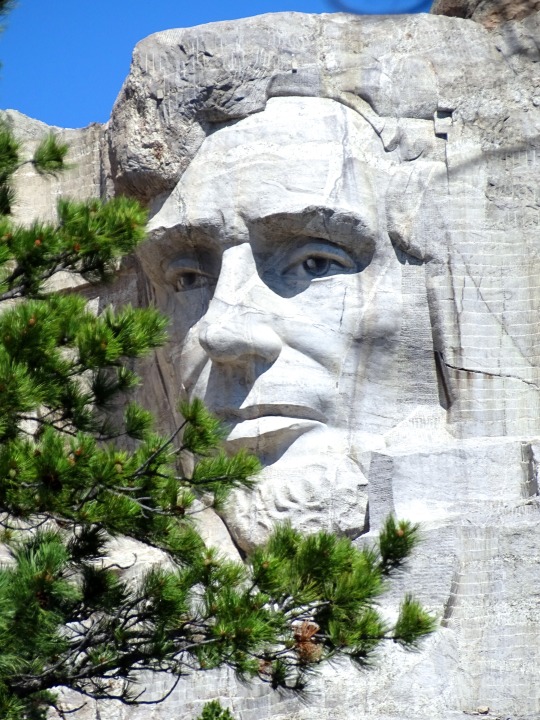
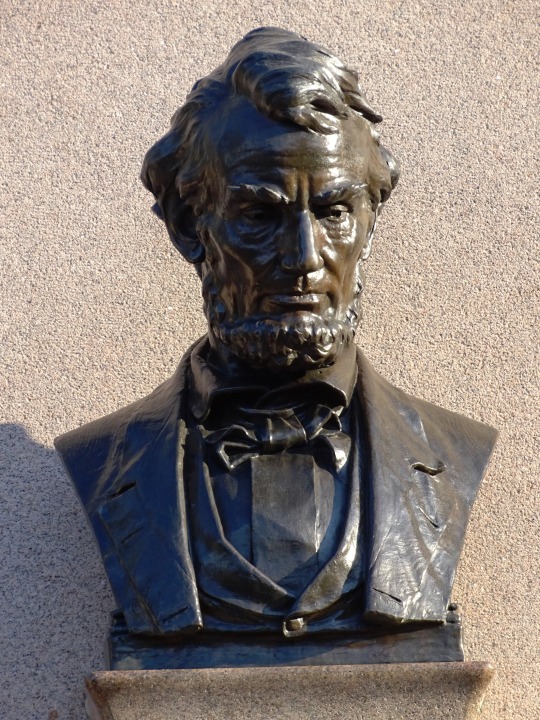
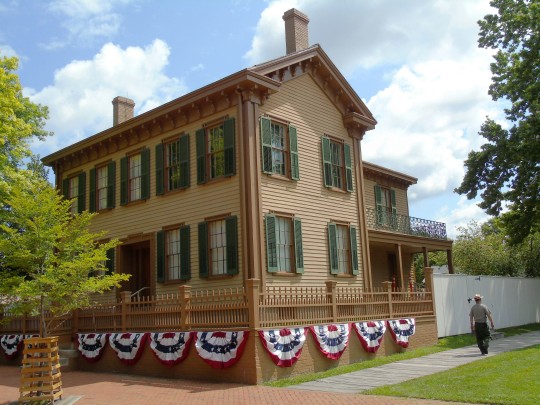
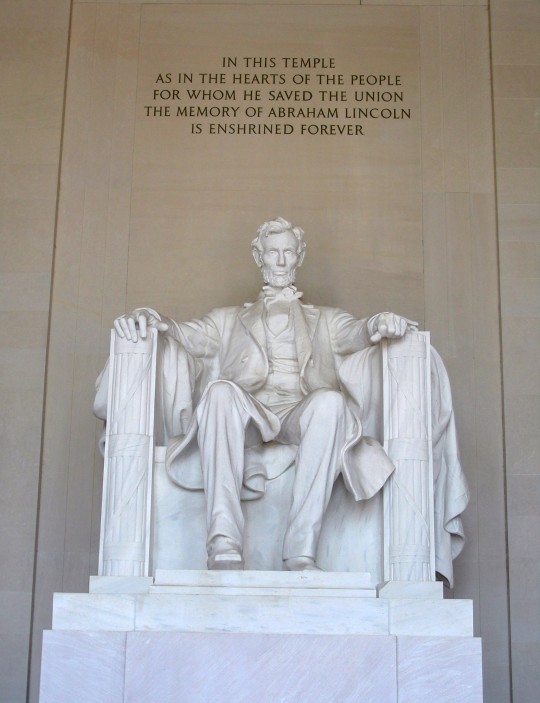
On November 6, 1860, Abraham Lincoln was elected the 16th president of the United States, beating Democrat Stephen A. Douglas, John C. Breckinridge of the Southern Democrats, and John Bell of the new Constitutional Union Party.
#Robert Russin#Abraham Lincoln#elected#16th US President#South Dakota#6 November 1860#anniversary#US history#original photography#vacation#travel#Mount Rushmore National Memorial#Gutzon Borglum#Gettysburg#Sherman Summit#Stanley J. Watts#J. Otto Schweizer#Washington DC#Springfield#Illinois
1 note
·
View note
Text
as an autistic kid who had a SpIn in the American Civil War (1860-1865) when I was 17, I actually agree with the Surpreme Court that we shouldn't let Colorado keep Trump off the ballot because traditionally saying states can do whatever they want has Ended Poorly for us as a nation.
#iggy gets controversial#thats my tag for political speak lol#look in the 1860 election they just Let southern states leave lincoln off the ballot we've been down that road and it wad Bad
0 notes
Text
The Lincoln Miracle
The 1860 presidential election was a pivotal moment in American history. All attempts to compromise on slavery finally came crashing down in the North, and the South solidified its opinions on the matter. The election outcome that year would decide if the United States would be a nation officially divided.
That year also saw a political event that is rarely seen. A man who was a dark horse going…
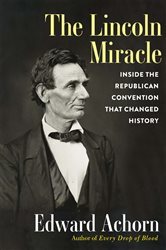
View On WordPress
1 note
·
View note
Photo
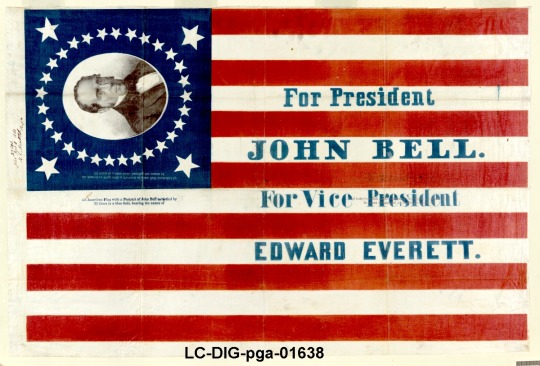
John Bell’s campaign motto, "Liberty and Union Now and Forever One and Inseperable. No North, No South, No East, No West, Nothing but the Union." Below the figures are streamers with the candidates' names. The streamers form a loop in the center on which are the words "The Union Must & Shall Be Preserved."
A Family and Nation Under Fire
#iBooks https://goo.gl/SAVc8A
#nook https://goo.gl/DSQXGu
#Amazon: https://goo.gl/A3brGd
KSU Press http://goo.gl/Z3z4Xs
0 notes
Note
Were the Lincoln and Douglass debates the first real presidential debates and why did they only have them in Illinois instead of other states?
Although Abraham Lincoln and Stephen A. Douglas were opponents in the 1860 Presidential election, the Lincoln-Douglas debates weren't Presidential debates at all. The Lincoln-Douglas debates took place in 1858 during their campaign for the U.S. Senate from Illinois.
The first Presidential debates were those between Richard Nixon and John F. Kennedy in 1960. There were a handful of Presidential primary debates before that, but JFK-Nixon were definitely the first between the major party nominees for President.
#Presidential debates#History#Presidency#Politics#Lincoln-Douglas Debates#Abraham Lincoln#Stephen A. Douglas#1860 Election#1960 Election#John F. Kennedy#Richard Nixon#President Kennedy#JFK#President Nixon#1960 Presidential debates#Commission on Presidential Debates#Presidential Politics
17 notes
·
View notes
Text
January 7, 2023
It’s finally over. After days of negotiations and 14 failed ballots—the most since 1860—Republican Kevin McCarthy was officially elected speaker of the House early Saturday morning. In exchange for the necessary votes to get him elected, the congressman had to beg, barter, and plead with a group of hardline Republicans who held out for a litany of concessions.
Since Wednesday, McCarthy and his supporters have been negotiating with several far-right GOPers, including some who have been implicated in Donald Trump’s attempt to overturn the 2020 election, as my colleague Dan Friedman previously reported. House members like Paul Gosar (R-Ariz.), Rep. Ralph Norman (R-S.C.), and Scott Perry (R-Pa.) all held out on their votes, until McCarthy eventually won them over.
According to CNN, here’s what the holdouts got from McCarthy in exchange for the speakership:
Any member can call for a motion to vacate the speaker’s chair
October 3, 2023

#politics#us politics#they specifically put that clause in eight months ago so they could do this#dance with the devil and see what happens#do you know why I had that link ready?#because they’re Chekhov’s assholes
403 notes
·
View notes
Photo

1860 Election in the US: Abraham Lincoln won w/ 180 Electoral votes.
100 notes
·
View notes
Text


When Democrats turn out, we win elections.
It is tiring giving fascist voters so much media oxygen without calling them fascists.
Let's call the 33% what they are: fascists. This is not a nascent voting block. They have always been there: 1860s Confederates, post Civil War Jim Crow, 1900s anti-immigrant, 1950s segregationist, 1970s evangelicals, 1980s Reaganites, 2000s FOX viewers, all screaming about communist/marxist boogeymen while getting crushed by tyrannical capitalism.
Take their hateful power by voting.
312 notes
·
View notes
Text
- Abraham Lincoln was elected into Congress in 1846.
- John Kennedy was elected into Congress in 1946.
- Abraham Lincoln was elected President in 1860.
- John F. Kennedy was elected President in 1960.
- Both were particularly concerned with civil rights.
- Both wives lost a child while living in the White House.
- Both Presidents were shot on a Friday.
- Both Presidents were shot in the head.
- Lincoln's secretary was named Kennedy.
- Kennedy's Secretary was named Lincoln.
- Both were assassinated by Southemers
- Both were succeeded by Southerners named Johnson.
- Andrew Johnson who succeeded Lincoln was born in 1808.
- Lyndon Johnson, who succeeded Kennedy was born in 1908
- John Wilkes Booth, who assassinated Lincoln, was born in 1839,
- Lee Haney Oswald, who assassinated Kennedy, was born in 1939.
- Both assassins were known by their three names
- Both names ere composed of fiiteen letters.
Lincoln was shot at the theater named "Ford"
- Kennedy was shot in a car called "Lincoln" made by "Ford.
- Booth and Oswald were assassinated before their trials.
- A week before Lincoln was shot, he was in Monroe, Maryland.
- A week before Kennedy was shot, he was with Marilyn Monroe.
- Lincoln was shot in a theater and the assassin ran to a warehouse.
- Kennedy was shot from a warehouse and the assassin ran to a theater...
Is that just a crazy coincidence? 🤔
#pay attention#educate yourselves#educate yourself#knowledge is power#reeducate yourself#reeducate yourselves#think about it#think for yourselves#think for yourself#do your homework#do some research#do your own research#ask yourself questions#question everything#coincidence#crazy huh#you decide#stranger than fiction#stranger things
171 notes
·
View notes
Text
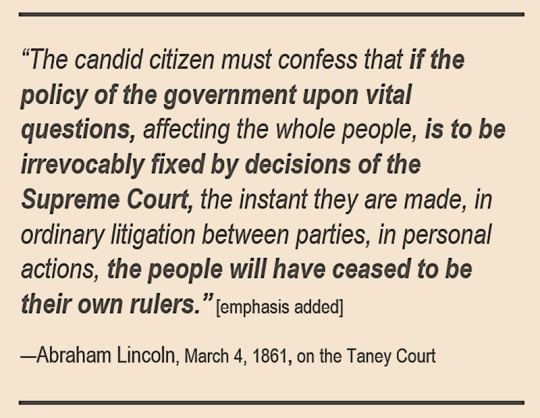
This is a gift🎁link so anyone can read the entire NY Times article, even if they don' subscribe to the Times.
Jamelle Bouie does another excellent job of looking at current events through the perspective of American history. In this column, he compares the current Roberts Court with the infamous late 1850s/ early 1860s Taney Court--the Court that lost all credibility with its Dred Scott decision. Below are a few excerpts.
If the chief currency of the Supreme Court is its legitimacy as an institution, then you can say with confidence that its account is as close to empty as it has been for a very long time.
Since the court’s decision in Dobbs v. Jackson Women’s Health Organization nearly two years ago, its general approval with the public has taken a plunge.
[...]
In the latest 538 average, just over 52 percent of Americans disapproved of the Supreme Court, and around 40 percent approved.
[...]
At the risk of sounding a little dramatic, you can draw a useful comparison between the Supreme Court’s current political position and the one it held on the eve of the 1860 presidential election.
[color emphasis added]
[See more below the cut.]
NOTE: Remember that back in the 1850s/1860s the Democrats were the party that supported slavery. The Democrats and Republicans switched positions on civil rights in the late 20th century.
It was not just the ruling itself that drove the ferocious opposition to the [Taney] Supreme Court’s decision in Dred Scott v. Sandford, which overturned the Missouri Compromise and wrote Black Americans out of the national community; it was the political entanglement of the Taney court with the slaveholding interests of the antebellum Democratic Party.
[...]
Five of the justices were appointed by slave owners. At the time of the ruling, four of the justices were slave owners. And the chief justice, Roger Taney, was a strong Democratic partisan who was in close communication with James Buchanan, the incoming Democratic president, in the weeks before he issued the court’s ruling in 1857. Buchanan, in fact, had written to some of the justices urging them to issue a broad and comprehensive ruling that would settle the legal status of all Black Americans.
The Supreme Court, critics of the ruling said, was not trying to faithfully interpret the Constitution as much as it was acting on behalf of the so-called Slave Power, an alleged conspiracy of interests determined to take slavery national. The court, wrote a committee of the New York State Assembly in its report on the Dred Scott decision, was determined to “bring slavery within our borders, against our will, with all its unhallowed, demoralizing and blighted influences.”
The Supreme Court did not have the political legitimacy to issue a ruling as broad and potentially far-reaching as Dred Scott, and the result was to mobilize a large segment of the public against the court. Abraham Lincoln spoke for many in his first inaugural address when he took aim at the pretense of the Taney court to decide for the nation: “The candid citizen must confess that if the policy of the government upon vital questions, affecting the whole people, is to be irrevocably fixed by decisions of the Supreme Court, the instant they are made, in ordinary litigation between parties, in personal actions, the people will have ceased to be their own rulers.”
[color/ emphasis added]
[formatting edited]
#scotus#roberts court#dobbs v. jackson women's health organization#taney court#dred scott#legitimacy of the supreme court#jamelle bouie#the new york times#gift link
103 notes
·
View notes